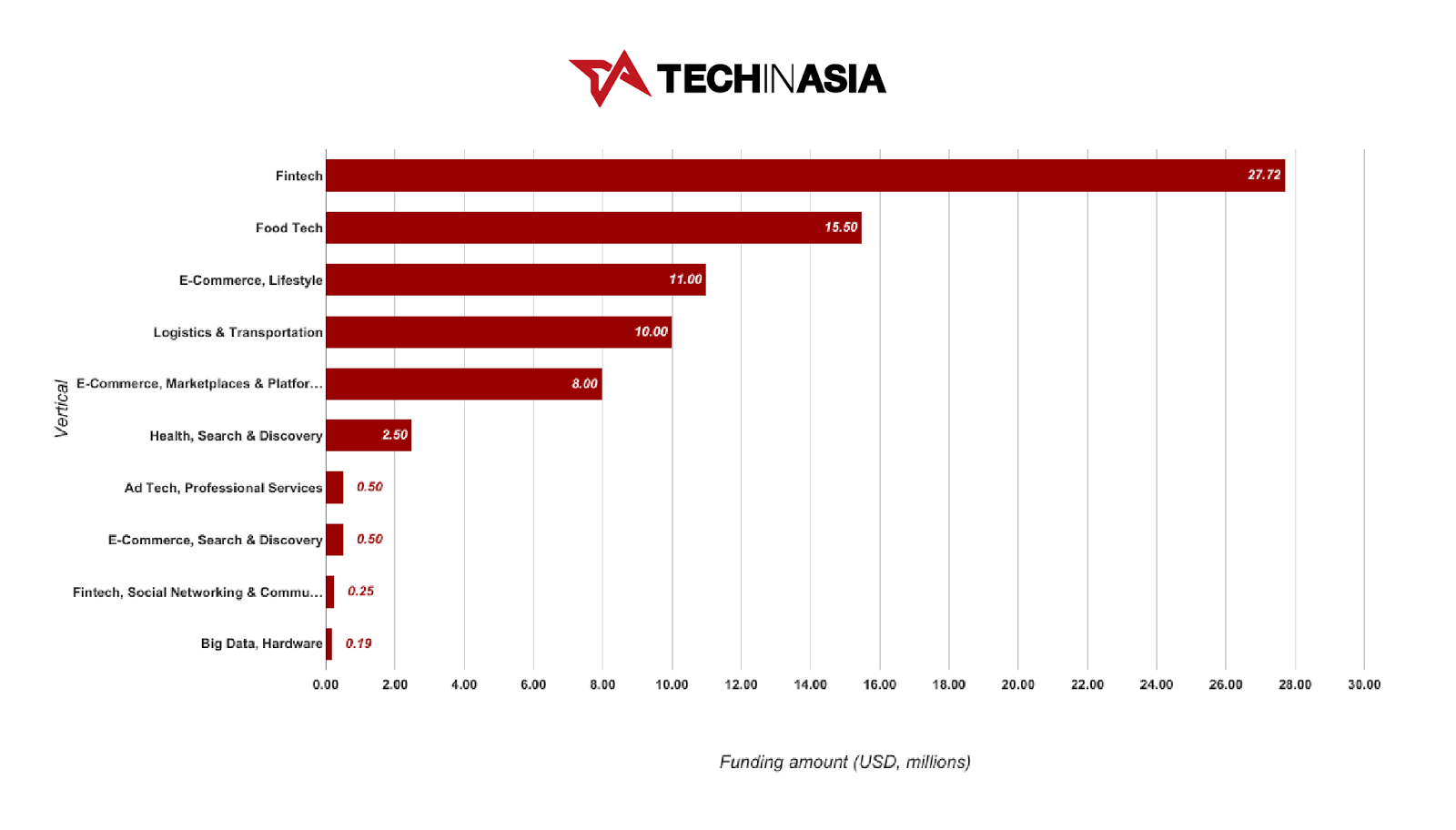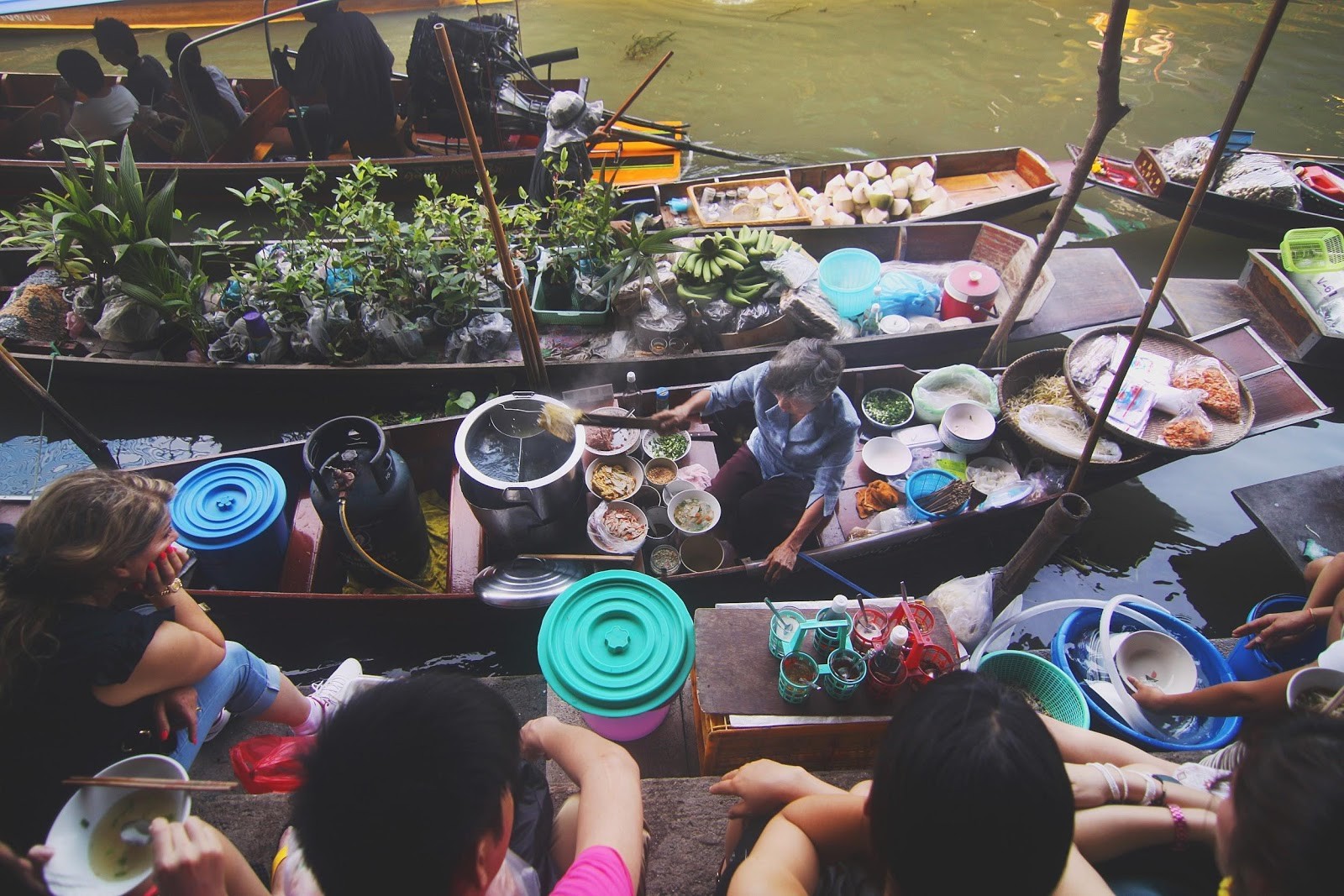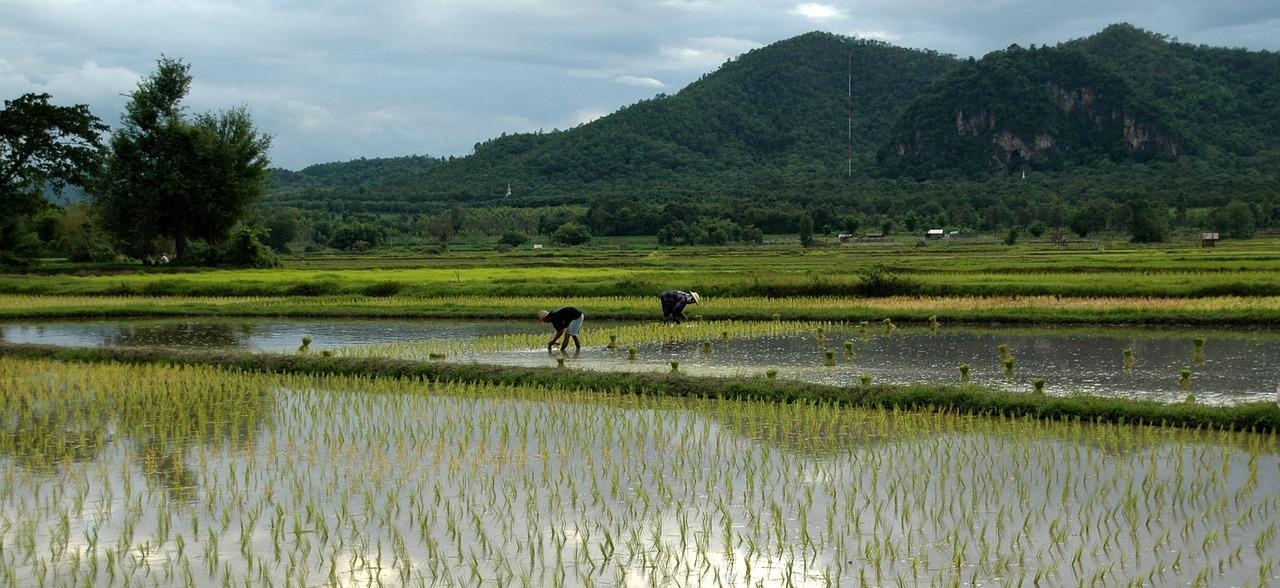
Image credit: Pixabay.
Bring up Thailand, and people usually think of daredevil tuktuks in Bangkok, the gold-tinted architecture, and its generous stretches of white beaches.
It’s also the place where Microsoft CEO Satya Nadella bought his first microcomputer.
Thailand is serious about tech. Last year, the Thai Venture Capital Association started a US$570 million venture fund. This year, CVC Capital Partners in Thailand will set up a startup investment fund at an additional US$250 million, according to Thailand’s National Innovation Agency (NIA).
Moreover, the median value of funding deals in Thailand’s startup ecosystem has increased from US$60,000 in 2012 to US$1.1 million in 2016, according to Tech in Asia data.

Funding action in Thailand in 2016 in key verticals. Image credit: Tech in Asia.
There’s more to look forward to this year. The Ministry of Science and Technology launched Startup Thailand 2017 Scale up Asia. The July event aims to be a major international platform for startups at the heart of Southeast Asia and is open for foreign exhibitors and guests.
Thailand’s position as an international platform for startups is good news for entrepreneurs and investors alike. Here are the tech verticals that present exciting business and investment opportunities:
Thailand is Asia’s next e-payments giant
Fintech made up the bulk of deals in 2016 at over US$27 million. Deals were in e-payments: online payments API Omise, electronic payments system Rabbit, and e-wallet DeepPocket.
Fintech is expected to ride on the growing wave of ecommerce in Southeast Asia thanks to the growing middle class. It also complements the burgeoning logistics businesses like Bangkok-based aCommerce and the rise of mobile payments.
Government support is strong: it created a regulatory sandbox and multiple national e-payment initiatives such as PromptPay.
To sustain the explosive growth of startups, the National Startup Committee is working on education platforms, incubator programs, and holistic support for startups through business laws and financial incentives.
For instance, Thailand’s Board of Investment (BOI) also added digital services as one of the eligible activities for investments. Startups, like those in fintech, can receive up to five years of income tax exemption. Venture capital firms are exempted for ten years, and co-working spaces for eight, according to NIA.

Thailand has a vibrant and unique food culture. Image credit: Pexels.
Food tech will become increasingly relevant in the region
With the international sriracha (hot sauce) craze and the fact that Thailand’s cuisine is popular around the world, it took a surprisingly long time for food tech to appear on the radar.
Michael Cluzel, Eatigo’s CEO and co-founder thinks that more people in Southeast Asia would eat out because of the rising wage levels in the region. The average monthly wage in Thailand reached an all-time high of US$408.64 (THB14,000) in end-2016.
One initiative food tech entrepreneurs can take advantage of is Thailand’s five-year plan (2016-2020) to become one of the top five exporters of halal products and services in the world.
The global halal industry is estimated to be worth US$10 trillion by 2030. Most of the world’s Muslims hail from South Asia and Asia Pacific at 62.1 percent. They are Thailand’s neighbors.
Travelers are flocking to Thailand. They won’t stop coming.
The Thai tourism industry is robust. Suvarnabhumi Airport in Bangkok received more than 50 million visitors in 2015. It is meant to hold 45 million. It’s not surprising given Thailand’s diversified travel offerings such as her local culture, places of historical interest, and a variety of outdoor activities thanks to the varied geography. It’s a great base to pilot or scale travel tech.
It’s a wise time for travel tech firms to set up shop. More travelers seek authentic localized experiences, giving rise to possible opportunities for search-and-discovery services and local guides. There has also been a rise in low-cost flights around Southeast Asia that’s expected to spur travel, according to a 2016 travel trends report.
Visit the beach, see the doctor
It’s not just the para-sailing beach lovers who are going to Thailand. Medical tourists in the country increased by 10 percent between 2014 and 2015, and spent US$3 billion.
The reason? Reliable and cheap healthcare.
For instance, peritoneal dialysis, a treatment for kidney failure, costs up to US$7,300 in Thailand annually according to the World Health Organization, compared to Singapore’s US$15,584.
There are also opportunities in the pharmaceutical industry, short-term care for foreign tourists, and managing healthcare standards in local hospitals.
For instance, Thai startup PillPocket provides personalized healthcare from pharmacists for people with health conditions like high blood pressure, high blood cholesterol, and diabetes.

Image credit: Pixabay.
Agriculture has untapped opportunities
Asians need their rice.
So, despite a transition to a knowledge-based economy, agriculture remains highly lucrative for export-dependent Thailand. It’s the largest rice exporter in Southeast Asia at US$4.4 billion in 2016. The meat and seafood export industry was US$5.9 billion.
It’s not just the Thais. There are around 100 million smallholder farmers across Southeast Asia. Most of them are aging, and at the mercy of weather conditions and global prices.
Agtech can help Southeast Asia achieve sustainable and inclusive growth. Smallholder farmers can take advantage of farm management software, precision agriculture, or predictive analytics for harvests or the weather. For instance, Thai agtech firm Tech Farm helps farmers manage soil and monitor water quality.
Ag-biotechnology, sensors and connected devices, novel farming systems, and supply chain tech are also global areas of growth, according to the AgTech Investing Report 2016.
With Trump backing out of the Paris climate deal, farmers and even investors can do their part to halt climate change.
Startup Thailand 2017 Scale up Asia will take place on 6 – 9 July 2017 at the Queen Sirikit National Convention Center, Bangkok. Expect international keynote speakers, forums, and involvement from governments and universities.
Apply to be an exhibitor, or register as a visitor.
This year’s focuses will include: GovTech/EdTech, AgTech/FoodTech, HealthTech, IndustryTech, Service Tech, Fintech, Lifestyle, TravelTech, and PropertyTech.
This post Five compelling startup opportunities in Thailand in 2017 appeared first on Tech in Asia.
from Tech in Asia https://www.techinasia.com/startup-thailand-trends
via IFTTT
No comments:
Post a Comment